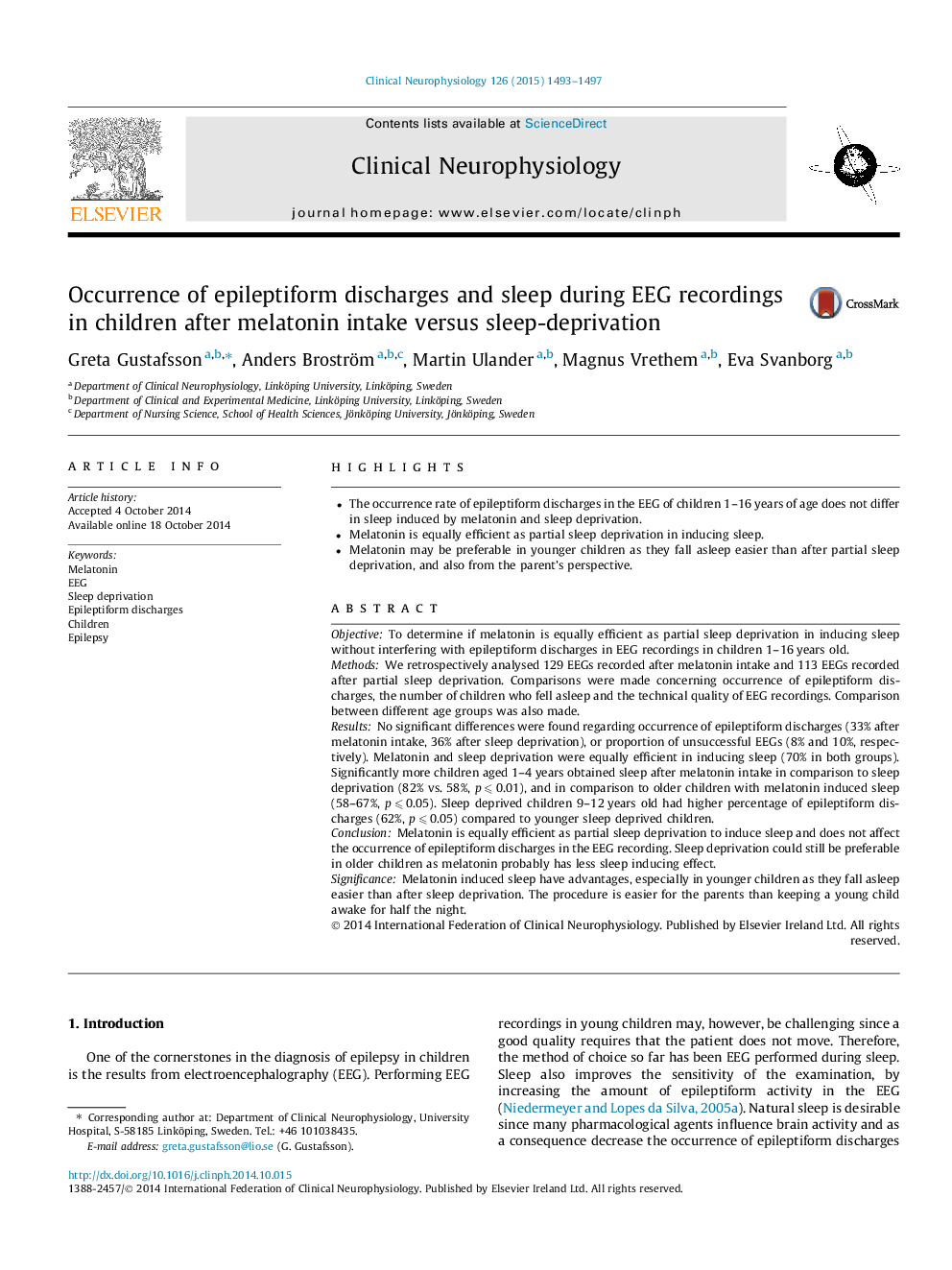| کد مقاله | کد نشریه | سال انتشار | مقاله انگلیسی | نسخه تمام متن |
|---|---|---|---|---|
| 3042548 | 1184954 | 2015 | 5 صفحه PDF | دانلود رایگان |
• The occurrence rate of epileptiform discharges in the EEG of children 1–16 years of age does not differ in sleep induced by melatonin and sleep deprivation.
• Melatonin is equally efficient as partial sleep deprivation in inducing sleep.
• Melatonin may be preferable in younger children as they fall asleep easier than after partial sleep deprivation, and also from the parent’s perspective.
ObjectiveTo determine if melatonin is equally efficient as partial sleep deprivation in inducing sleep without interfering with epileptiform discharges in EEG recordings in children 1–16 years old.MethodsWe retrospectively analysed 129 EEGs recorded after melatonin intake and 113 EEGs recorded after partial sleep deprivation. Comparisons were made concerning occurrence of epileptiform discharges, the number of children who fell asleep and the technical quality of EEG recordings. Comparison between different age groups was also made.ResultsNo significant differences were found regarding occurrence of epileptiform discharges (33% after melatonin intake, 36% after sleep deprivation), or proportion of unsuccessful EEGs (8% and 10%, respectively). Melatonin and sleep deprivation were equally efficient in inducing sleep (70% in both groups). Significantly more children aged 1–4 years obtained sleep after melatonin intake in comparison to sleep deprivation (82% vs. 58%, p ⩽ 0.01), and in comparison to older children with melatonin induced sleep (58–67%, p ⩽ 0.05). Sleep deprived children 9–12 years old had higher percentage of epileptiform discharges (62%, p ⩽ 0.05) compared to younger sleep deprived children.ConclusionMelatonin is equally efficient as partial sleep deprivation to induce sleep and does not affect the occurrence of epileptiform discharges in the EEG recording. Sleep deprivation could still be preferable in older children as melatonin probably has less sleep inducing effect.SignificanceMelatonin induced sleep have advantages, especially in younger children as they fall asleep easier than after sleep deprivation. The procedure is easier for the parents than keeping a young child awake for half the night.
Journal: Clinical Neurophysiology - Volume 126, Issue 8, August 2015, Pages 1493–1497
